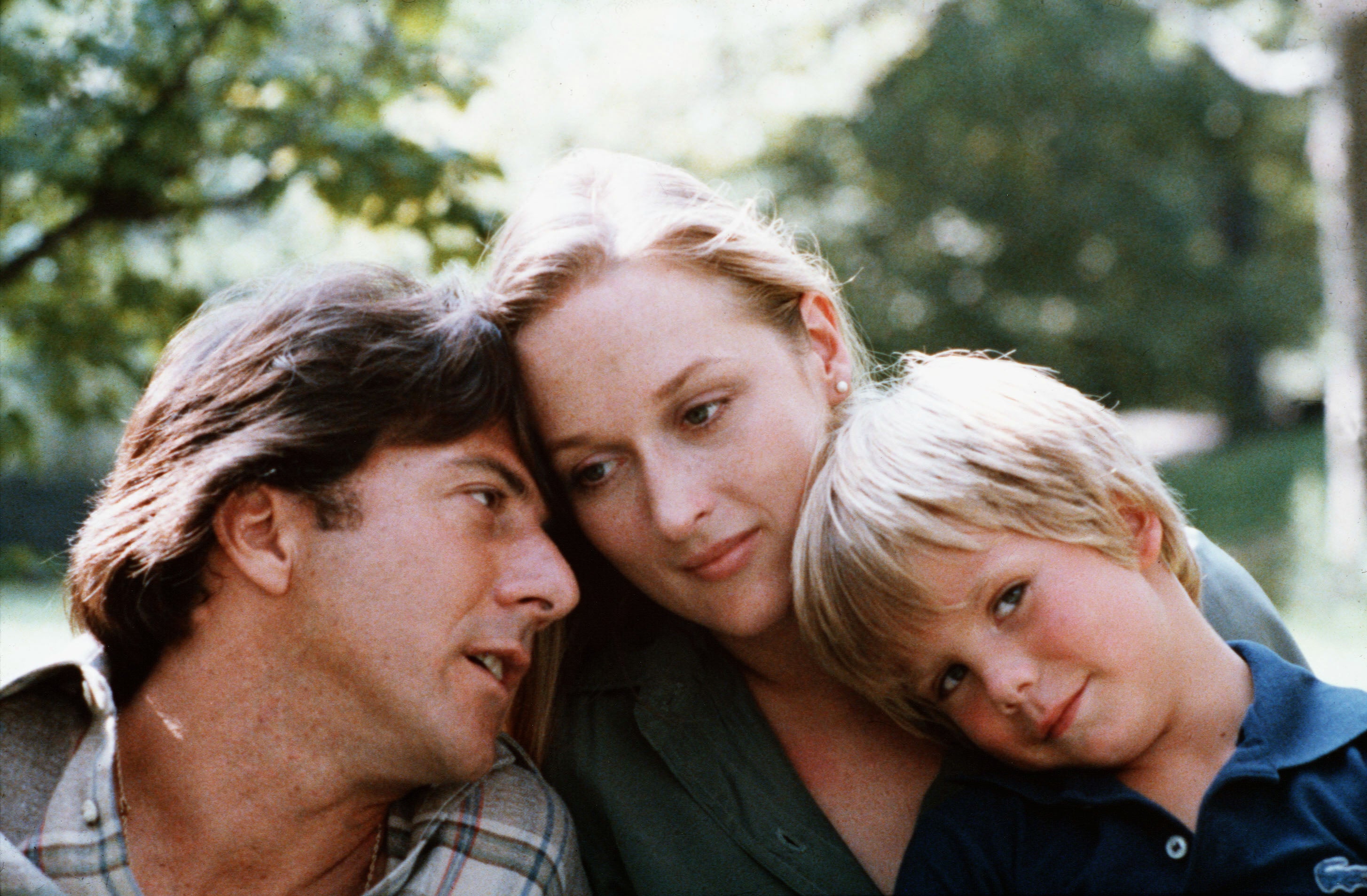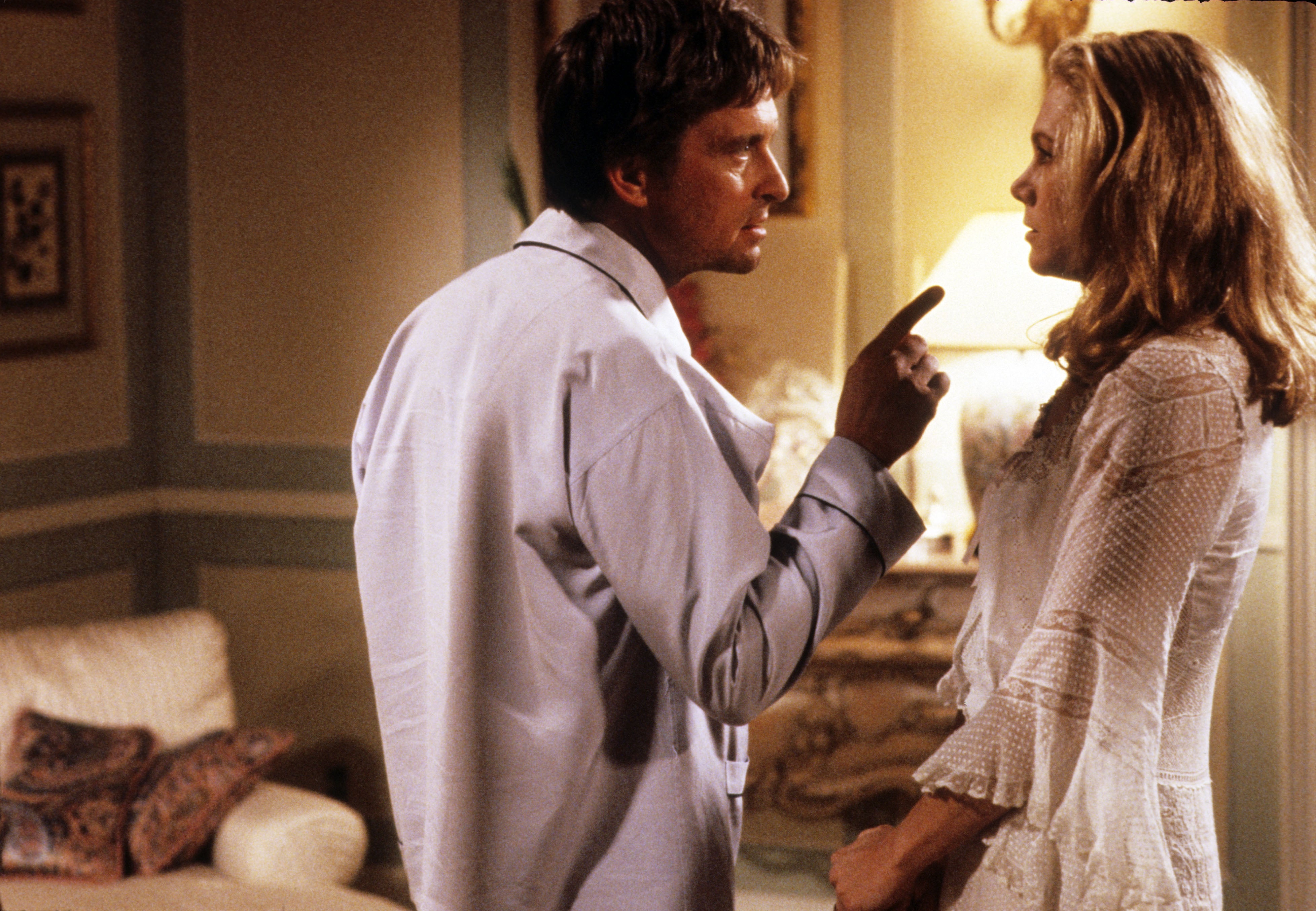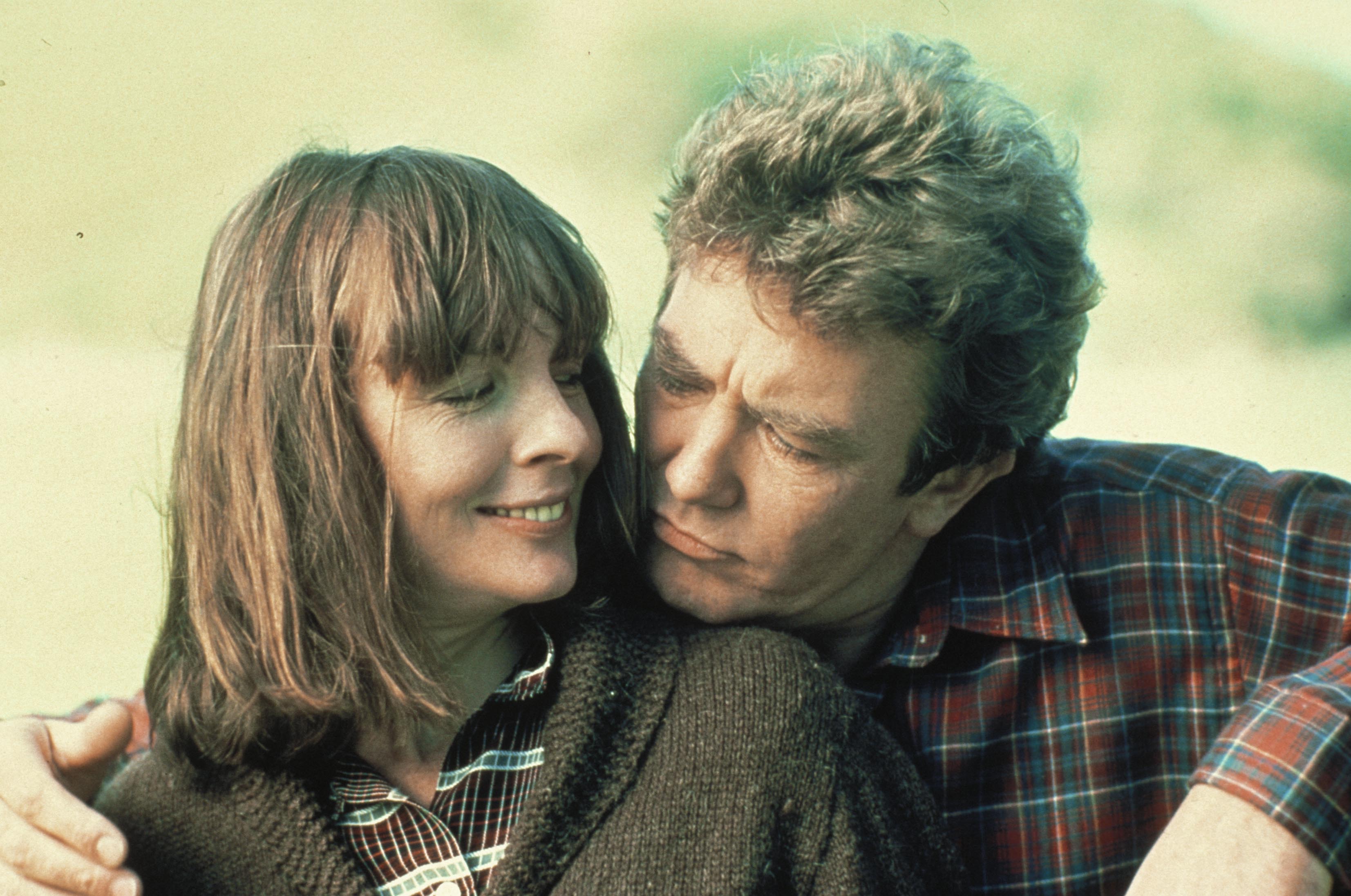‘Crymore vs Crymore’: Why divorce movies are so enduring
As Julia Roberts and George Clooney team up again for the romcom ‘Ticket to Paradise’, playing a divorced couple, Geoffrey Macnab explores how films deal with love on the rocks

Screenwriters spend an inordinate amount of time devising new ways to create couples. Romantic dramas and comedies find love springing up in the most unlikely places and between the most unlikely people. Opposites often attract. Memorable affairs transcend class, race, age, gender, and sometimes even planetary boundaries. When characters on screen fall for one another, nothing can keep them apart. They defy everything, from tutting relatives to death itself, to maintain their relationships.
The dark side of screen romance, though, is the divorce movie. It’s a little remarked fact that filmmakers spend almost as much time splitting up couples as they do in bringing them together. Look through recent film history and you will find a surprising number of films about separation, emotional uncoupling, and divorce.
Ageing heartthrobs Julia Roberts and George Clooney will shortly be on screen together again in Ol Parker’s romcom Ticket To Paradise. The film features an older, wiser pair of jaded divorcees who rush to Bali to try to stop their lovestruck daughter from getting married – and repeating their terrible mistake from 25 years before.
It’s not as if Clooney and Roberts have always played carefree, blissfully happy lovers and spouses. Clooney starred as a ruthless and opportunistic divorce lawyer bewitched by the wife of a client (Catherine Zeta-Jones) in the Coen Brothers’ Intolerable Cruelty (2003). Roberts was cast as a prostitute thrown together with a wealthy businessman client (Richard Gere) in Pretty Woman (1990). In their previous films together, in the Ocean’s Eleven franchise and in Money Monster (2016), the sparks between Roberts and Clooney didn’t exactly fly. Nonetheless, their careers have been built on their romantic appeal. Audiences don’t expect to see them in roles in which they spend the entire time being “mean to each other”, which Clooney told Deadline, is all they do in Ticket to Paradise.
In divorce movies, a certain amount of meanness comes with the territory. So does some emotional laceration.
“There is one thing about marriage that hasn’t changed, the way you hurt when it begins to fall apart,” trumpeted the trailer for Alan Parker’s divorce drama, Shoot the Moon (1982), as if the feelings of devastation felt by the film’s protagonists Diane Keaton and Albert Finney at the disintegration of their marriage could actually be a selling point. Watching a couple tear strips off each other as their kids cried in the background didn’t strike many as the best way to spend their Friday night, one reason why the film struggled at the box office.
You could see, though, why MGM had taken a chance on it. Three years before, Robert Benton’s Kramer vs Kramer (1979) had been an enormous hit, turning into the highest-grossing film of the year and winning several Oscars. Benton had realised that a story about a couple divorcing could be every bit as effective a tearjerker as one about them being separated by illness or death, especially if there was a child involved.
A key insight around which Benton built the film was that Ted (Dustin Hoffman), the advertising exec husband, and Joanna (Meryl Streep), the wife who leaves him, hadn’t completely stopped loving each other.
Thirty years later, Noah Baumbach’s A Marriage Story (2019), starring Adam Driver and Scarlett Johansson, treated the break-up of a couple in a similarly delicate and empathetic fashion.
In the courtroom scenes at the end of Kramer vs Kramer, Streep’s Joanna presents her decision to abandon her husband and son Billy as an act of supreme sacrifice.
“In order to leave him, I had to believe it was the only thing that I could do…and that it was the best thing for him,” a tearful and tremulous Joanna tells the judge, as the emotional temperature rises. Now, she wants her son back, but it’s for his sake, not her own. “I really believe he needs me more.”
Hoffman’s brutal lawyer berates Joanna: “So, you were a failure at the one most important personal relationship of your life?” At this point, Streep’s Joanna looks so crestfallen that everyone’s sympathies tilt toward her. Even Hoffman’s character takes her side.


Some critics dismissed Kramer vs Kramer as manipulative and terminally mawkish. “Crymore vs Crymore,” one magazine derisively lampooned the film. Such barbs, though, showed how effectively Benton had turned audience expectations on their head. This was a divorce movie reformulated as a weepy. Instead of warring spouses consumed with bitterness, it had a husband and wife who were almost as upset about the breakdown of their marriage as the spectators crying into their Kleenex boxes.
In the wake of Kramer vs Kramer, divorce movies threatened to emerge as a new genre in Hollywood. Along with Parker’s Shoot the Moon, there were several other break-up themed movies among them: The Last Married Couple In America (1980), starring Natalie Wood and George Segal as one of the few couples in their circle still together; Mike Nichols’s Heartburn (1986), based on Nora Ephron’s autobiographical novel about her own divorce, and Danny DeVito’s War of the Roses (1989).
Filmmakers were using many different strategies to show relationships unravelling. DeVito’s film is cartoonishly violent and very funny. Michael Douglas and Kathleen Turner take a sadistic pleasure in humiliating one another. “When I watch you eat, when I look at you lately, I just want to smash your face in,” Barbara Rose (Turner) cheerfully tells her husband in what passes for small talk as they set about wrecking each other’s lives. If psychological torment isn’t working, they’re happy to turn to physical pain instead.
The humour in Heartburn is marginally more sophisticated but, in its way, equally vicious. Jack Nicholson is the philandering husband, Streep the long-suffering wife. He is a top political journalist in Washington DC. She is a New York food writer. Ephron’s screenplay shows him in all vanity, absurdity, and petty deceit and her in her neediness. It’s nowhere near as funny, though, as the Ephron novel on which it is based. Nicholson isn’t a natural comic actor. In a role in which we should be laughing at him, he is still too much the alpha male. You can’t help but recoil at the smugness of the characters, living in their Washington Beltway media bubble.
Hollywood divorce movies are invariably framed as entertainment, not as gut-wrenching character studies. Whether in fizzing screwball comedies like The Awful Truth (1937), starring Cary Grant and Irene Dunne, or in psychological dramas/horror pictures like Sleeping with the Enemy (1991), starring Patrick Bergin as the abusive husband and Roberts as the wife who can’t get away from him, the filmmakers never want to probe too deeply into their subject matter.

Divorce on screen European-style tends to be far bleaker and more introspective.
“I wonder if there is anything more horrible than a husband and wife who hate each other,” one character observes early on in Ingmar Bergman’s Scenes from a Marriage (1973), the Swedish film still regarded today as the Citizen Kane of divorce movies. The line comes from the playwright Strindberg and hints at the abyss into which movies about separation can fall when they become too bleak.
To some British critics in the 1970s, everything about Scenes from a Marriage seemed alien and aggravating. “What is long, Swedish, deeply depressing, humourless and enormously boring?” the Daily Express asked in its review of the film, which had begun life as a six-part TV series.
The film was still a hit. Last year’s very earnest US remake for HBO, starring Oscar Isaac and Jessica Chastain, showed that it hasn’t dated.
Divorce is one of cinema’s most universal subject matters. It can be tackled on screen in Hollywood or in Iran, for example, in Asghar Farhadi’s 2011 Oscar winner, A Separation. It’s inexpensive. If you’re showing two people arguing in a room, you don’t need Michael Bay to do the explosions and the special effects. Actors like it. A good divorce movie not only gives them the chance to throw some crockery at each other but potentially to win awards for doing so. From Ryan Gosling and Michelle Williams in Blue Valentine (2010) to George Sanders and Ingrid Bergman in A Voyage to Italy (1954), there have been many exceptional performances in films about love on the rocks.

Directors relish the chance to explore their characters in a depth that simply wouldn’t be possible in some lightweight romance. Liv Ullmann, whose career will be celebrated in a season at the British Film Institute in April, starred alongside Erland Josephson in Scenes from a Marriage and directed Faithless (2000) from a script by Bergman. In these films, it’s never a case of couples casually drifting apart. There is always huge anguish, recrimination, and sexual jealousy surrounding the end of their relationships.
“Our love tore our hearts apart and from the very beginning carried its own seeds of destruction,” Bergman wrote in his autobiography of his extra-marital affair and subsequent marriage to Gun Hagberg, who became the model for many of the female characters in his films. The Swedish director knew that the endings of relationships are as turbulent as their beginnings – one reason he made so many films dealing with separation and divorce.
One doubts that Clooney and Roberts will be looking too closely at the dark side of divorce in Ticket to Paradise. After all, it’s billed as a romantic comedy and has been made by Working Title, the company behind Notting Hill. Nonetheless, the new film serves as yet another reminder that when it comes to showing love and marriage on screen, breaks-ups often make for far more compelling drama than stories in which couples live happily ever after.
‘Ticket to Paradise’ is released on 30 September. The Liv Ullmann season, Face to Face, runs at the British Film Institute in April






Join our commenting forum
Join thought-provoking conversations, follow other Independent readers and see their replies
Comments